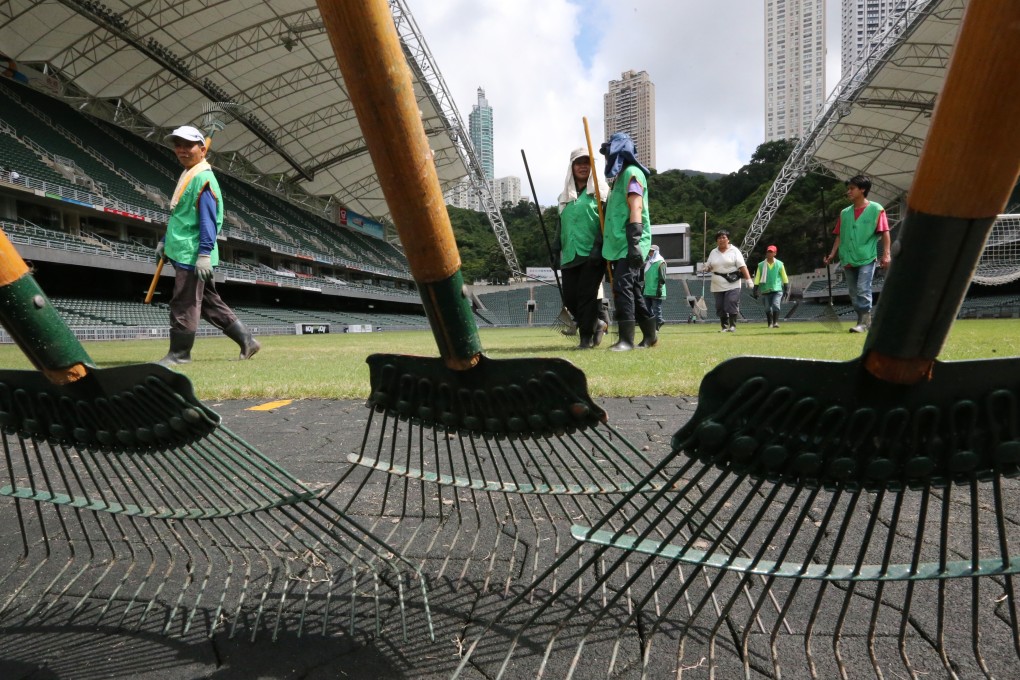Hong Kong must rethink plan to replace grass pitches with artificial turf
It goes without saying that Hong Kong does not have a strong appetite for greenery. When there is open space, it is more likely to be filled with a concrete podium dotted with some plants rather than an emerald lawn surrounded by shady trees.

It goes without saying that Hong Kong does not have a strong appetite for greenery. When there is open space, it is more likely to be filled with a concrete podium dotted with some plants rather than an emerald lawn surrounded by shady trees. There are even plans to replace more government-run grass soccer fields with artificial turf to help save money and maximise usage. But a University of Hong Kong academic has flashed the yellow card at this plan, after his study found that artificial turf would lead to higher health risks for users and have an impact on the environment. According to Professor Jim Chi-yung, chair professor at the university's department of geography, the surface temperature of artificial grass on a hot summer day of 35 degrees Celsius can shoot up to a sizzling 70 degrees, while natural grass peaks at no higher than 38 degrees. Overall, artificial turf can be 90 per cent hotter than the air temperature in summer.
It does not take an expert to tell us that the evaporation of moisture on natural turf produces a cooling effect. Replacing grass fields with synthetic ones will not only raise the temperature in urban areas, it also increases the risk of heat stroke for athletes. The benefits of natural fields are not just confined to a cooler environment for players. Some soccer players interviewed by this newspaper also said they preferred real grass, saying playing on a synthetic surface would make competitors more prone to serious injuries.
The Leisure and Cultural Services Department currently manages 47 natural and 34 artificial pitches. Three natural pitches have been replaced since 2011 and there are plans to convert another five in the next two years. Money is inevitably a concern, as the cost of pitch repairs for natural turf can be up to HK$336,000 each per season. But some overseas studies also showed that while artificial turf costs less to maintain, replacement is expensive.
Given the choice, few would prefer playing on artificial grass. The last thing we want is to have artificial surfaces on all pitches that are neither good for players nor the environment. The findings should give the department cause for a rethink.